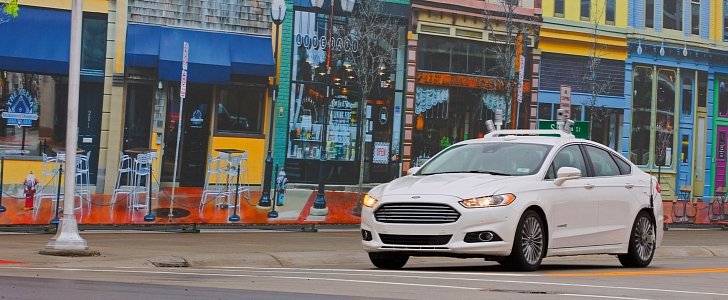Self-driving cars are getting a lot of attention these days, but a Ford engineer expects them to become a global reality in 15 years’ time at the earliest.
Google plans to launch a self-driving car by the year 2020, but a development engineer named Andreas Meyer disagrees. According to Meyer, a Ford employee working on the Blue Oval's Adaptive Active Cruise Control and its new Traffic Jam Assist feature, fully-autonomous cars are "at least" 15 years away.
The issue with autonomous cars, Meyer says, is that you cannot launch such a vehicle on a global scale at the same time, as each country is different from its neighbors, and so are the driving habits.
While self-driving vehicles will abide by traffic regulations by the book, that doesn't imply a by-default adaptation to local driving habits. Without this adaptation deeply embedded in its software, a self-driving vehicle could be put in complicated situations in which even human drivers need a moment to figure out a solution.
Since programming has limitations based on the skills of the human operator responsible for the native code, the world's first self-driving cars have been developed to learn from particular incidents and every inch driven. Unfortunately, this isn't enough for real-world driving, because cultural differences are high and have their influence on the behavior of drivers.
The Ford employee referred to by the guys at Trusted Reviews explains that he and his colleagues do a lot of testing in traffic jams. They've been in traffic in several important European cities like London and Paris, where they have found that every city is different and so are its inhabitants.
Andreas Meyer expects that actual fully-autonomous driving, the kind praised by Google representatives, will become a reality in at least 15 years’ time from today. By 2020, Google could manage to provide an autonomous vehicle only in particular markets, Meyer says. The tech giant could sell its future self-driving products on the markets that matter most to its existence and gradually improve on them until a global presence is reached.
The issue with autonomous cars, Meyer says, is that you cannot launch such a vehicle on a global scale at the same time, as each country is different from its neighbors, and so are the driving habits.
While self-driving vehicles will abide by traffic regulations by the book, that doesn't imply a by-default adaptation to local driving habits. Without this adaptation deeply embedded in its software, a self-driving vehicle could be put in complicated situations in which even human drivers need a moment to figure out a solution.
Since programming has limitations based on the skills of the human operator responsible for the native code, the world's first self-driving cars have been developed to learn from particular incidents and every inch driven. Unfortunately, this isn't enough for real-world driving, because cultural differences are high and have their influence on the behavior of drivers.
The Ford employee referred to by the guys at Trusted Reviews explains that he and his colleagues do a lot of testing in traffic jams. They've been in traffic in several important European cities like London and Paris, where they have found that every city is different and so are its inhabitants.
Andreas Meyer expects that actual fully-autonomous driving, the kind praised by Google representatives, will become a reality in at least 15 years’ time from today. By 2020, Google could manage to provide an autonomous vehicle only in particular markets, Meyer says. The tech giant could sell its future self-driving products on the markets that matter most to its existence and gradually improve on them until a global presence is reached.

